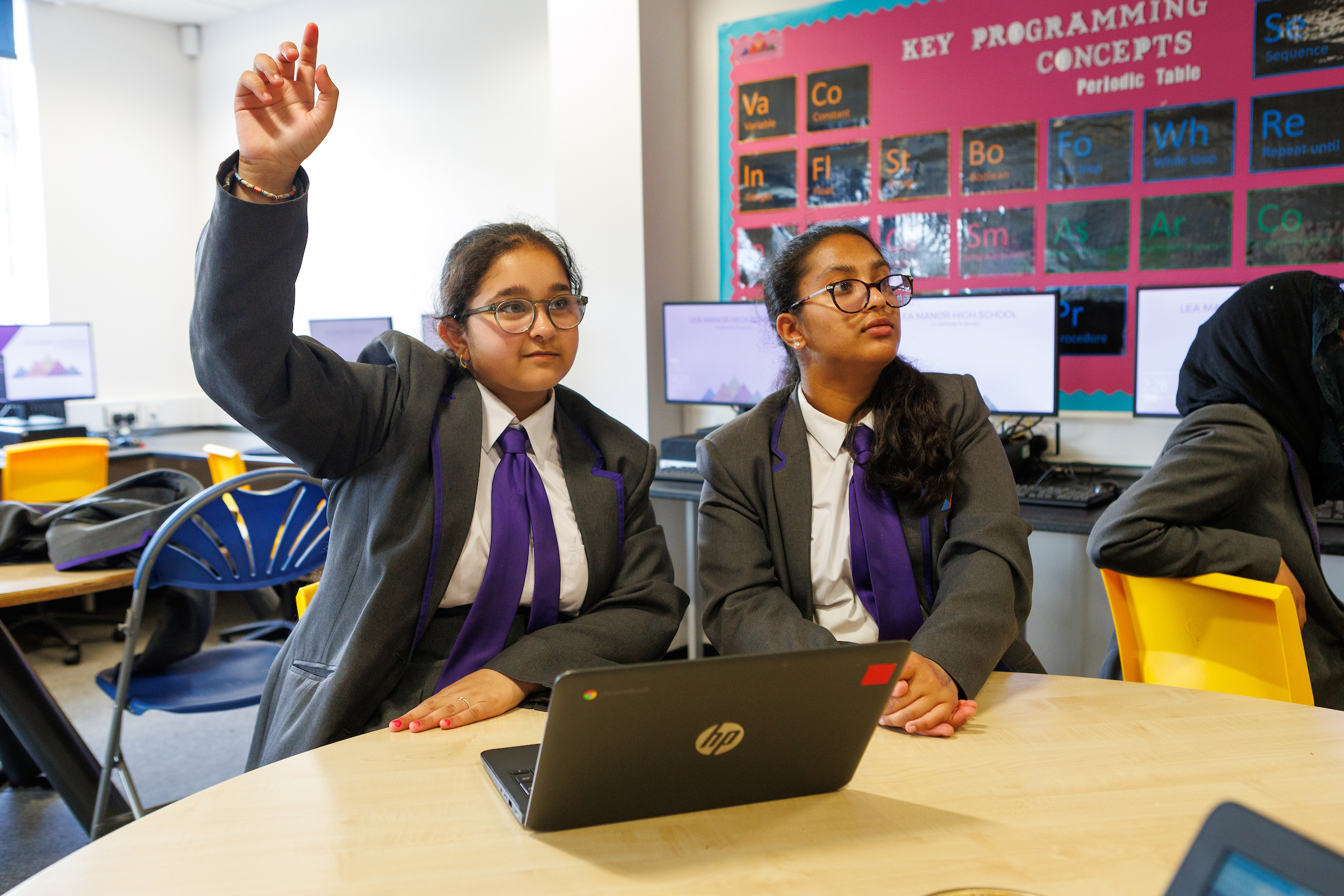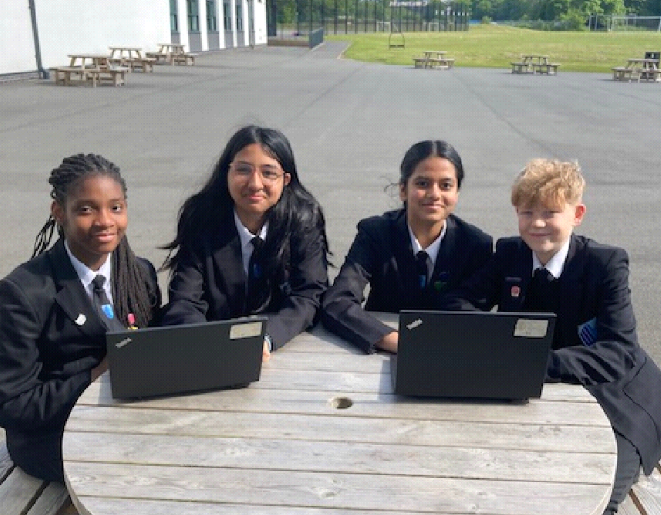Students leave the classroom "ten feet tall" thanks to Industry Volunteers

For students 11 to 14 years of age (KS3) being able to link education to the world of work helps them identify a pathway to a career which suits them.
Unfortunately, many young people are not aware of the range of job opportunities. In The Good Career Guide, Lord Sainsbury of Turville bemoans that “many young people are kept in the dark about the full range of options open to them”. Role models are often few and far between – students are lucky if they secure a single work placement during their time at school and careers advice is a luxury that many schools cannot afford.
Robotics and computer science/coding are the top two STEM disciplines of interest to students. CapGemini’s 2023 report Futureready education highlights “That interest, however, needs to be nurtured and converted to a potential career path along their educational journey”.
More specifically, within the tech sector, teachers tell Apps for Good how difficult it is to describe the range of careers that exist – tech roles are always evolving. That’s why, for the last 12 years, we have been facilitating Industry Engagement as a core activity within our courses. Corporate partners and a community of hundreds of tech and business professionals make up our Industry Volunteers. This year alone, 208 professionals volunteered. A further 225 signed up to shortlist entries for our national Showcase and 53 were involved in Showcase judging sessions, providing a vital link between those in education and those in industry.
Opening doors with the help of Industry Volunteers
Paul Gallanagh, Deputy Headteacher and Principal Teacher of Computer Science at Dunoon Grammar School recognises Apps for Good’s established network, which can “open doors to industry experts we ourselves simply wouldn’t be able to. Our young people have worked closely with the likes of Spotify, MasterCard, Salesforce, Virgin and Lego in recent years.” Paul describes how students feel after engaging with one of our Industry Volunteers, “When they have gone online and discussed their ideas [,...] with the Expert then received feedback, the kids walk out of the classroom ten feet tall.”
Via a video call, Industry Volunteers meet classes of student teams during an Industry Engagement session, where they give feedback and offer advice on prototype app ideas developed by teams of students. These sessions are completely free and available to everyone. Meeting real volunteers from industry – albeit virtually – helps to broaden young people’s real-world experience of professionals who are in their chosen career and inspire and motivate them as they undertake our courses.
The experience of meeting and talking to a professional can help to strengthen a student’s educational aspirations, beginning with a focus on GCSE options through to qualifications and training beyond KS4. Steve Hall, Senior Leader at LiFE Multi-Academy Trust believes engaging with industry partners “really opened students’ eyes to the careers that might be out there [...] This opportunity presents them with inspirational role models that some learners may not ordinarily have access to”.
And Industry Volunteers also benefit hugely from the sessions. Fabi, former designer with industry partner OVO Foundation enthuses: “It's nice to know something, have the experience and pass it on to the new generations because they're great [...] They're really excited about sharing ideas with you."
Students who don’t consider themselves to be ‘techie’ are awoken to the idea that digital careers could actually be suited to their skillset. Project manager, Serene Yu Okawa, from Google, confirmed this when introducing students from John Beddoes Campus, Newtown High School in Wales to the wide range of jobs at Google.
 Showcase winning team Never Forget from West Bromwich Collegiate Academy
Showcase winning team Never Forget from West Bromwich Collegiate Academy
Young people recognise the impact Industry Engagement sessions have on them. Student Shilbane, part of the Showcase winning team Never Forget from West Bromwich Collegiate Academy, now aspires to pursue a career in technology and explains the impact that the Industry Engagement session had on her: “Before I joined the Apps for Good course, I was thinking about a medical career [but] as time goes on, I think neurosurgery will become more machinery-based. I would like to program those machines.”
Authored by Dr Emma Posey, Senior Learning Manager, Apps for Good (@emmaposey)
Apps for Good is constantly striving to improve its courses. We always welcome feedback. Whether you have tips of your own to share, have spotted a mistake, want to let us know that you enjoyed the resources or would like to share any other thoughts, please email us at education@appsforgood.org.